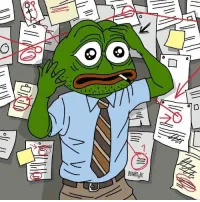
Anyone else feel like their head is exploding? ;>
Image from "BIG TROUBLE IN LITTLE CHINA"; how so appropriate ;>
let me throw a concept at you...
it's called information overload, and it causes analysis paralysis.
when the amount of input to a system exceeds its processing capacity. Decision makers have fairly limited cognitive processing capacity. Consequently, when information overload occurs, it is likely that a reduction in decision quality will occur.
In our case, the system is us, and our processing capacity is our brains. The above link notes that the concept has been around longer than the term (if you want to go deeper down a pertinent digression, check out Haselton's work on The Evolution of Cognitive Bias which will go into why we developed heuristics to save our brain from all that hard work of thinking ;> )
However, in the information age, we all have access to a much greater range of access to information...and along with it, entirely new sources of disinformation and bias. But if you don't think that the early lords and jarls engaged in #informationwar, then you don't understand the point of skalds and bards...at all ;>

Image source - although this meme originated from "It's Always Sunny In Phildelphia"
Information Overload(yes, a second link to overload you with, my dear) leads to analysis paralysis, which is:
a person's tendency to over-analyze or over-think upon a decision to such an extent that he/she fails to make a choice resulting in a paralyzed state of inaction
Corona-paralysis
We are subject to an incredible amount of information and disinformation regarding the epidemic we are dealing with. There are several sources affecting this flow:
- Political posturing from the CCP
- Political posturing from the CCP...I mean from the journalists, burrocrats, and politicians of the bought-off Democrat party
- Political posturing from the Republican party
- Political posturing from Trump (still don't know if he is toeing the GOP line or is at odds with them)
- The fact that there is still insufficient medical testing and understanding of the virus.
- A culmination of the above factors - i don't believe that most of the actors don't know what they are reacting to beyond the need to manipulate it for their own use.
There are three factors compounding the difficulty of making decisions in this situation:
- The severity of the choices we have to make, both in terms of the immediacy of the choice and the possible consequences of the choice.
- The potential deadliness of mistakes
- Most of us are trying to fit the situation into our existing viewpoints of the world
These two factors contribute to analysis paralysis.

Image Source -What Are the Symptoms of Information Overload?
Personally,
I haven't been writing much on this lately. I keep trying to understand it from my own point-of-view, instead of trying to understand it from the full consequences. Then, when events related to the problem occur that don't "fit", I am spending too much time trying to reconcile it (hmmm, there is another factor to analysis paralysis to consider).
The situation did arise when I was attempting to apply my brain to other events, including the also-intrusive and sudden buyoff of Steemit.
Even though I had been tracking it in China, and made my own personal preparations, the long term affects of what could happen here (after the virus runs it course) are staggering to contemplate.
Some suggestions for dealing with it (compiled from the above links, and a thought or two of my own)
- Spending less time on gaining information that is nice to know and more time on things that we need to know now.
- Focusing on quality of information
- Identify the Objectives Behind a Decision
- Learning how to create better information
- You can't fix all the world's problems by yourself, in one day; learn to relax while processing data
- Single-tasking, and keeping the mind focused on one issue at a time.
- Spending parts of the day disconnected from interruptions;fully concentrate for a significant period of time on one thing.
- Recognize you can’t consume every drop of information out there and don’t feel guilty for ignoring some (or a lot) of it.
- Feel free to take action without all the facts. We all do this at times – ask yourself “what’s the worst that can happen?” when you realize the answer is “probably, not a lot” just take action.
- "A good plan violently executed now is better than a perfect plan executed next week." /Patton
- Create an information queue and tackle it on a regular basis.
- Filter information ruthlessly.
- Don’t Look for Perfect But Close to Perfect
- Delegate information responsibilities. If you are part of a team – don’t take responsibility for knowing everything; encourage people to specialize and then rely on their understanding.
- Learn to skim. Most information really only contains a key point or two
- Do you need a FULL understanding, or just an understanding of what affects you?

